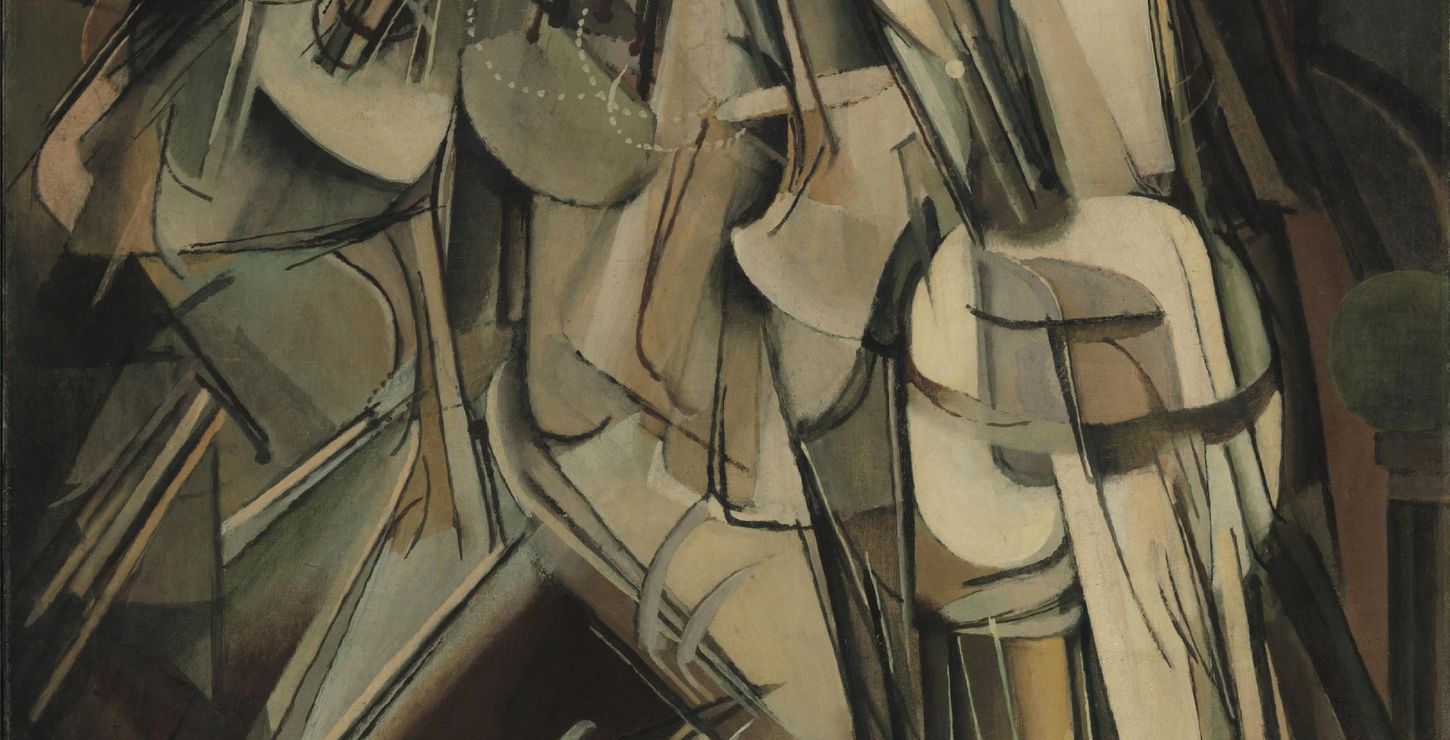Main Building
"Can one make a work which is not a work of art?" In pursuing the answer to his own question, Marcel Duchamp rejected all conventional ideas about what makes art art. His challenges provoked a storm of controversy in the early part of this century and continue to influence new generations of artists today. Duchamp constantly ventured into unexplored territory - altering a commercial calendar photograph with a few drops of paint, mounting a bicycle wheel on a stool, wrapping an exhibition of Surrealist paintings in a mile of string, probing the potential of the young medium of film - in order to stretch the definition of art and alter the way we look at the world. Yet he vehemently rejected the notion that his position was anti-art, saying, "whether you are 'anti' or 'for,' it's two sides of the same thing." A major installation of works by Marcel Duchamp (1887-1968), mounted in celebration of the 100th anniversary of the artist's birth, Apropos of Marcel Duchamp 1887/1987 reveals the depth of his creative genius. Strokes of wit and intellect, such as the "readymade" bicycle wheel, are displayed along with objects to which he devoted years of planning and an immense technical skill, such as The Bride Stripped Bare by Her Bachelors, Even (The "Large Glass"), 1915-23, a mysterious erotic saga constructed on glass panels for which the artist's published notes and studies serve as a guide. The display is drawn primarily from the Museum's own holdings, the foremost collection of his work in the world, which include his pivotal masterpieces: The "Large Glass"; Nude Descending a Staircase, No. 2, 1912, the cubist painting which outraged visitors to the 1913 Armory Show in New York and which remains his best-known work; and Given: 1. The Waterfall, 2. The Illuminating Gas, 1946-66, a room-sized tableau viewed through two peepholes in a weathered door, on which the artist worked secretly for 20 years after claiming to have given up art. In addition to important paintings, drawings, notes, objects, and Duchamp's "portable museum" of his work in a valise, the installation will include films by and about the artist to be shown continually. A small gallery celebrates his life-long interest in the game of chess.
